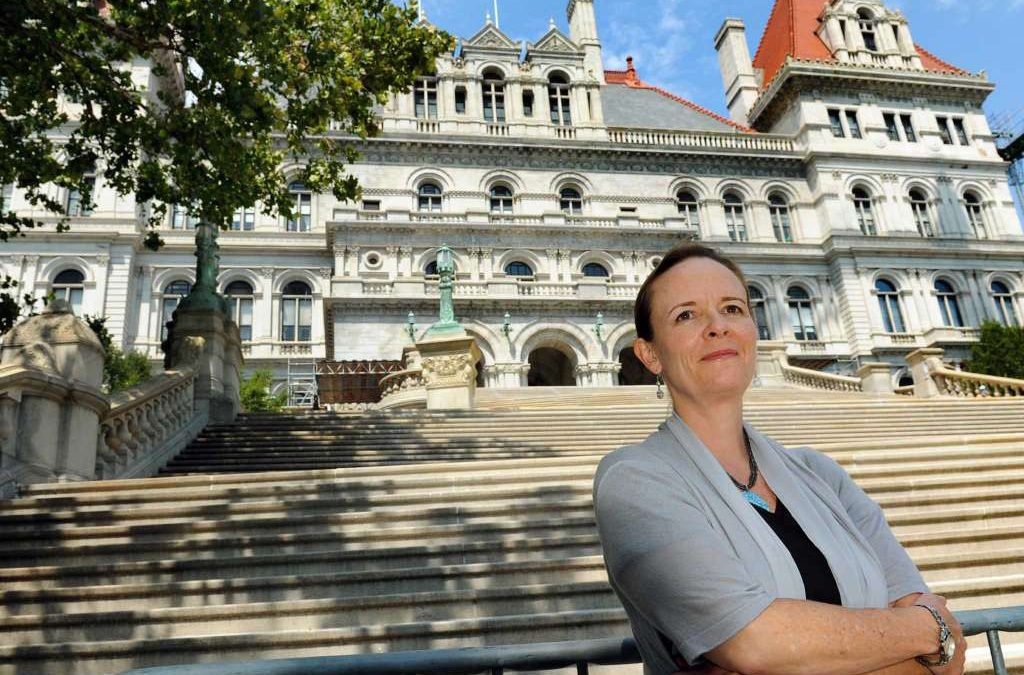New York State made history on April 10th when the Governor signed into law hard-won legislation that raises the age of juvenile jurisdiction to 18. Prior to the passage of this law, New York was one of only two states across the nation that continued to automatically treat 16- and 17-year-olds as adults in the justice system. With the stroke of a pen—after years of hard work by a broad and determined coalition of families, faith leaders, advocates (including Schuyler Center) and lawmakers—New York State moved from the shameful position of last in the nation in prosecuting teenagers as adults, to a state with one of the strongest, most innovative systems for handling teenage offenders. This is a tremendous accomplishment.
This new legislation is a game changer for the nearly 28,000 16- and 17-year-old New York teenagers arrested each year, the vast majority for minor crimes (72% are misdemeanors).[1] Furthermore, this is an issue that disproportionately affects youth of color—over 70% of 16- and 17-year-olds arrested are black and Latino, and 80% of those sentenced to incarceration are black and Latino.[2] At long last, New York law reflects what brain science has told us for years—that teenagers do not have the same capacity to control their impulses or make decisions as adults, in the criminal justice system, and that young offenders should receive treatment and services appropriate to their development if we are serious about preventing recidivism, and moving them on a path toward self-sufficiency and success.
The mechanics of the law are complex and will be implemented in stages. The age of juvenile jurisdiction will be raised to 17 by October 2018 and to 18 by October 2019. Juvenile misdemeanors will be moved to Family Court, felonies will be handled in a newly created Youth Part of the criminal court, with the presumption that non-violent felonies will be moved down to Family Court, unless the district attorney files a motion within 30 days showing “extraordinary circumstances” that the case should remain in the Youth Part. In some cases, as determined by a three-part test, violent felonies that do not involve a deadly weapon, sexual offense or significant physical injury, will also be transferred to Family Court. Family Court judges will also preside over the Youth Part of the criminal court. The law also requires parental notification of youth arrests and the sealing of youth criminal records after a period of ten years.
Unfortunately, New York’s 2017-2018 budget fails to advance the needs of children and families in many other areas. The budget slashes funding for foster care funding by $62 million—or by nearly 14%. These cuts cannot be rationally justified. Thousands of children continue to need foster care services, and increased instances of substance use among parents threaten to drive up the number of children who come into contact with the foster care system. And, New York continues to score poorly on federal assessments of our foster care outcomes, including the time it takes NY children and youth to be placed in permanent safe homes, and the State’s record of keeping children entrusted in its care safe from harm.
The budget further imperils children and families by cutting funding for child care subsidies. For the 43% of New York families whose incomes are low enough to qualify for a subsidy (<200% of the FPL or $40,320 for a family of three), a subsidy can mean the difference between economic stability, and financial crisis. Without a subsidy, low-income working parents are faced with unbearable choices, like choosing between leaving their children with unreliable caregivers or cutting their work hours, leading to deeper poverty or even homelessness. In addition, quality, reliable child care is a highly effective intervention for families at risk of child welfare involvement. Yet, at present, only 17% of eligible NY families receive subsidies and the new budget’s $7 million reduction will strip approximately 925 children of their subsidy.
New York has positioned itself as a leader on social issues, and a voice for the voiceless—a state that cares for the health and well-being of all its citizens. We passed Paid Family Leave and marriage equality and have invested in Pre-K. And this year we ensured that more youth will be treated fairly in the justice system by raising the age. We urge New York State to build upon these successes, and devote real attention and resources to improving services, systems and policies that strengthen families, and enable all our children to thrive.
[1] Dispositions of Youth Arrests (16 and 17 year olds), New York State Division of Criminal Justice Services.
[2] Final Report of the Governor’s Commission on Youth, Public Safety and Justice: Recommendations for Juvenile Justice Reform in New York State. [/vc_column_text]


Recent Comments